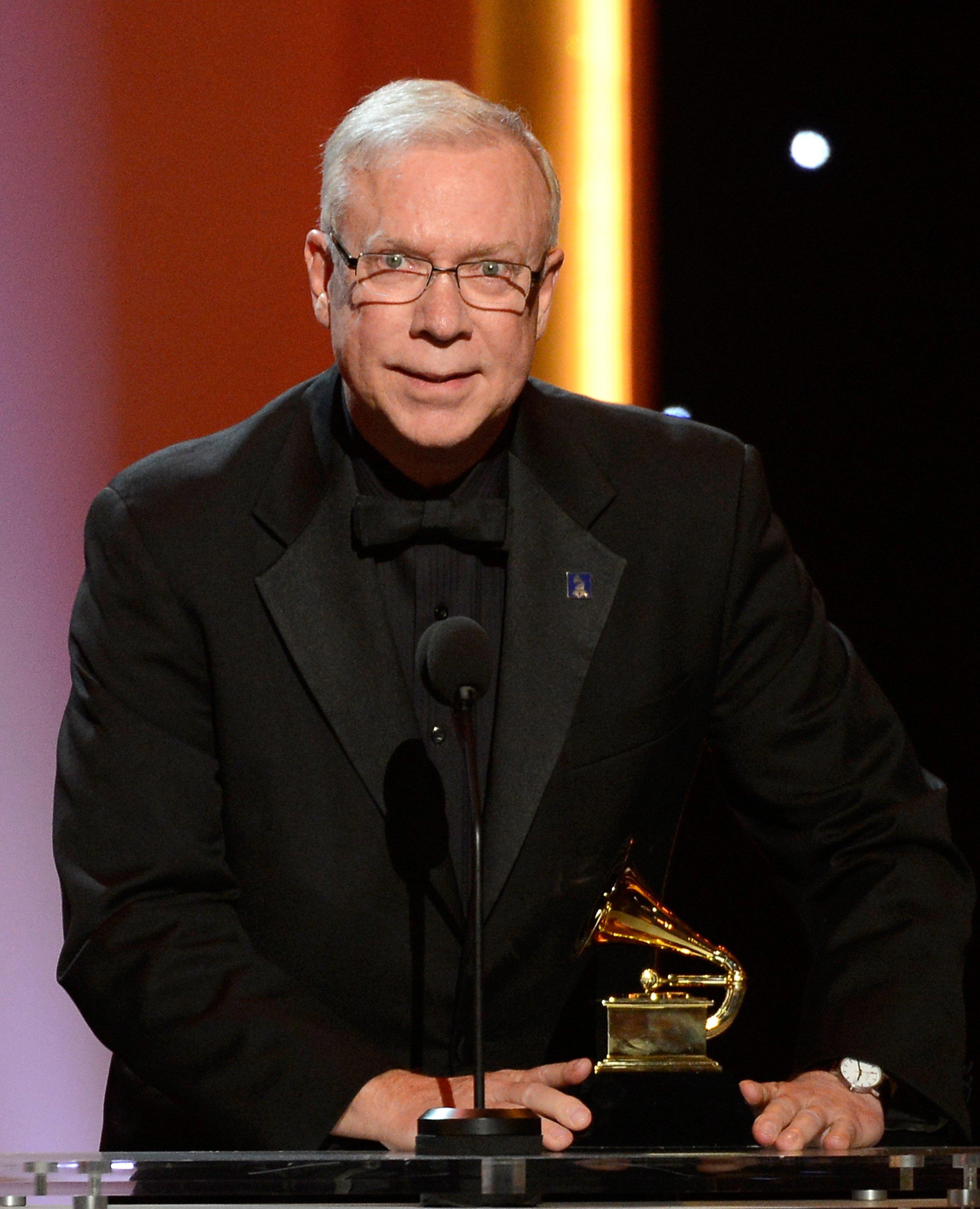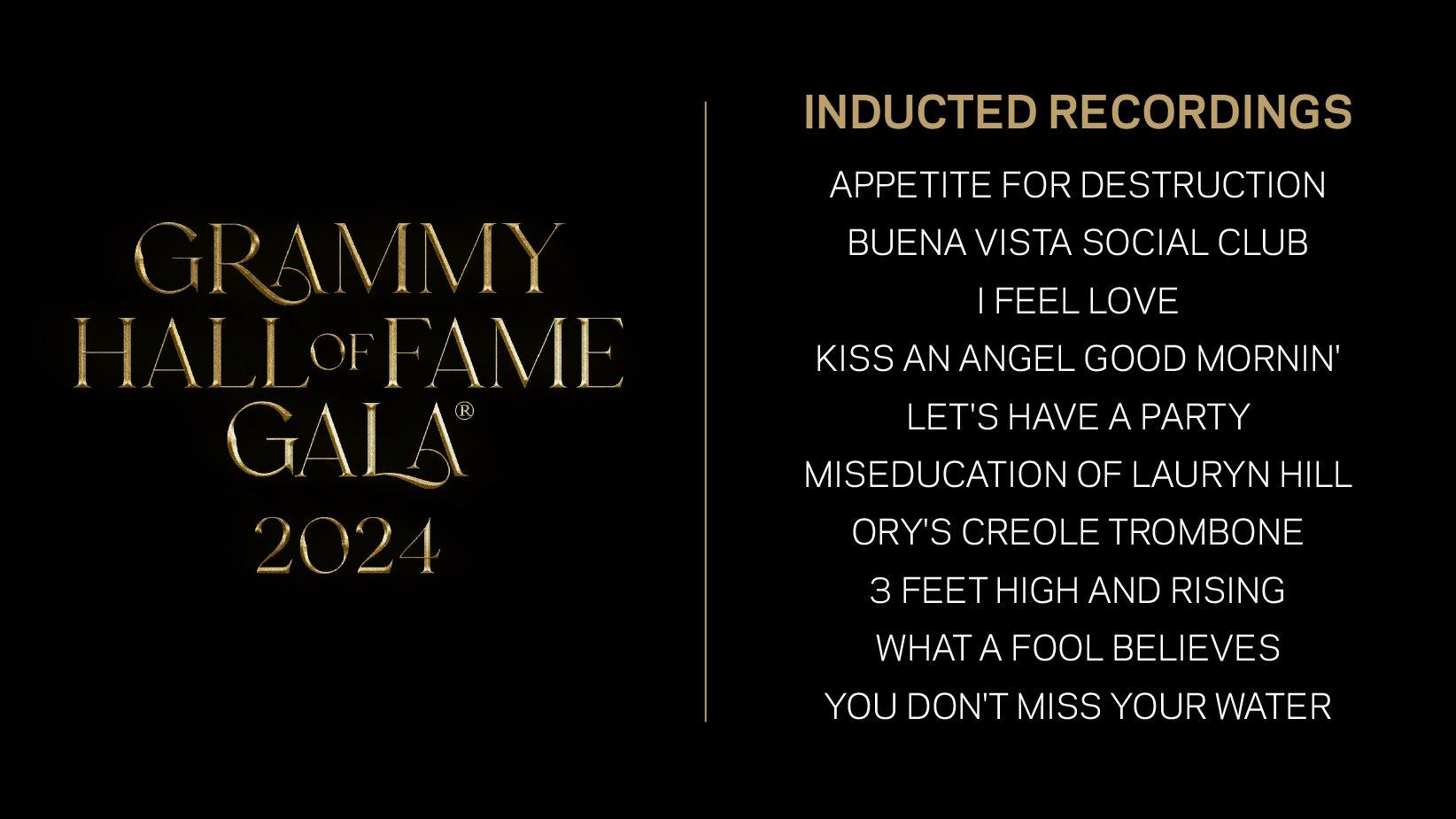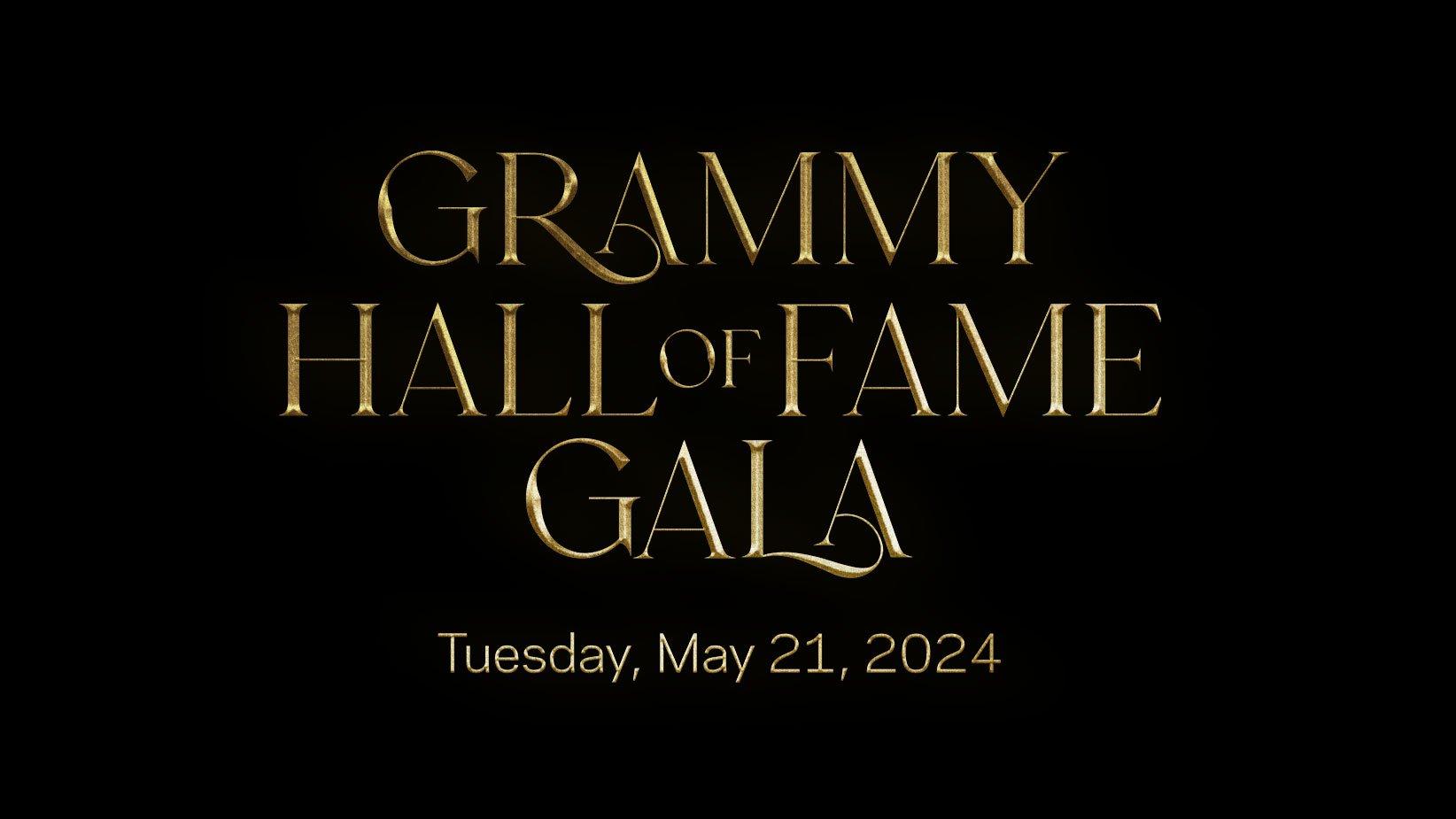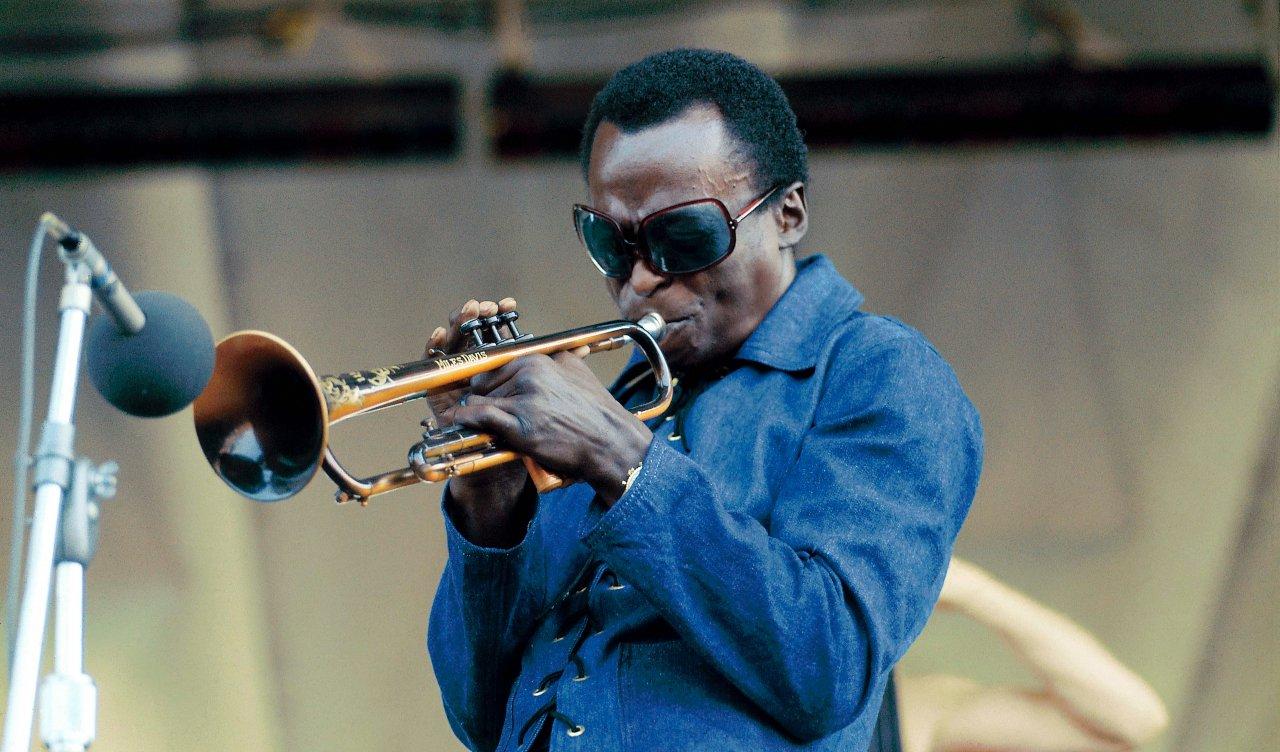Photo: Kevork Djansezian/Getty Images

news
GRAMMY Hall Of Fame Inspirations: Gary Burton
From Miles Davis to Chick Corea and beyond, GRAMMY-winning jazz vibraphonist details the five GRAMMY Hall Of Fame recordings that shaped his remarkable jazz journey
(To commemorate the GRAMMY Hall Of Fame's 40th Anniversary in 2013, GRAMMY.com has launched GRAMMY Hall Of Fame Inspirations. The ongoing series will feature conversations with various individuals who will identify GRAMMY Hall Of Fame recordings that have influenced them and helped shape their careers.)
In his 2013 autobiography, Learning To Listen: The Jazz Journey Of Gary Burton, seven-time GRAMMY-winning vibraphonist and bandleader Gary Burton opens up about growing up in rural Indiana, where he took his first music lessons at age 6. He discovered jazz at 13 when he heard Benny Goodman's "After You've Gone" and was "enthralled."
Soon his collection included everything from the "West Coast cool" of Dave Brubeck to the "East Coast hothouse" of Charles Mingus. He went on to study at Berklee College of Music in Boston and shared a stage with artists such as Nashville, Tenn., studio wizard and guitarist Hank Garland, pianist George Shearing and saxophonist Stan Getz before setting out on his own. With the Gary Burton Quartet, Burton not only secured his place in jazz history as a player and bandleader, but also by pioneering what came to be known as jazz/rock fusion with the release of his 1967 album Duster, which earned him his first career GRAMMY nomination for Best Instrumental Jazz Performance, Small Group Or Soloist With Small Group.
Over the years Burton has crossed paths with other jazz greats such as Chick Corea, Miles Davis, Duke Ellington, and Pat Metheny, all of whom helped influence his career. Below are the five GRAMMY Hall Of Fame recordings that helped shape Burton's remarkable jazz journey.
Kind Of Blue
Miles Davis
Columbia (1959)
Album
Inducted 1992
"I was 16 years old and at band camp, playing in a student band and coincidentally there was a festival in French Lick, Indiana, and we were invited [to appear] as the opening act. Miles' group was the headliner and I watched them from the side of the stage. That group had [John] Coltrane and [Adderley] Cannonball and Bill Evans. It was the band [who played on] Kind Of Blue and I had never heard anything like that in jazz. The record came out shortly after that and Kind Of Blue was my introduction to modern jazz. It is the single most important jazz record of the past century."
Focus
Stan Getz
Verve (1961)
Album
Inducted 1999
"[Stan Getz Quartet] wasn't the first name band I played in, but I was with Stan Getz for three years and it was the experience that had the most influence on me. This record was done just before I met him. It was Stan's favorite and, for him, a very daring project — it had just saxophone with a string section. He was very proud of it, he talked about it a lot and I came to regard it as Stan's best work. For me, it was the first jazz recording I was aware of that didn't feature a typical jazz band. It was an unusual, risky kind of project I normally would not have been attracted to. Strings? Not even a rhythm section? Yet, it was so impressive that it opened my eyes and ears to all kinds of possibilities."
Far East Suite
Duke Ellington & His Orchestra
RCA (1967)
Album
Inducted 1999
"I met Duke while still with Stan. We crossed paths [at] different events and festivals and at one point he invited me to a recording session and it was the most awesome experience imaginable. I only found out later, when the record came out, that it was Far East Suite.
"The band was set up on the bandstand facing the booth but there was a space of about 40 feet between the conductor and the control room and there they had set up chairs. There [was] somewhere between 60 to 100 people. The control room was jammed full and the crowd spilled out into the studio and we were sitting in folding chairs. But people were dressed in tuxedos and formal gowns and fur coats. It was like they were going to a ball.
"Watching the band working on this music was terrific and Duke was amazing. Here you had this great party scene going on and he never stopped, he seemed to ignore everything swirling around in the room. And the music was so original, so inventive. These were remembrances of these exotic cities they had visited in their tours. The early Duke music I had heard was more conventional big band, even though his was among the most modern sounding. But this was on another level."
Sgt. Pepper's Lonely Hearts Club Band
The Beatles
Capitol (1967)
Album
Inducted 1993
"I was starting my new band [Gary Burton Quartet and] trying to [incorporate] rock and jazz, and I had become a huge fan of new rock, but the Beatles were my favorites. They had this eclectic way about their work. Every tune on their record was from a different style of music — there was a track with a string quartet and then there would be a blues shuffle, and then there would be something with a sitar or something orchestral — and we didn't do that in jazz. We would use the same style and the same instrumentation for the whole record. What the Beatles did was exciting. It had a big influence on me."
"Now He Sings, Now He Sobs"
Chick Corea
Blue Note (1968)
Single
Inducted 1999
"This was the first record I heard of Chick's. We [have] since gone on to a 40-year-long collaboration but this was the introduction. Bill Evans had been the leading influential player and one of my favorites, but the younger players — Chick, Keith [Jarrett], Herbie [Hancock] — were moving away from that. Chick struck me as the best I'd ever heard in modern piano. It was as good as I ever heard it done."
(Seven-time GRAMMY-winning jazz vibraphonist Gary Burton released his autobiography, Learning To Listen: The Jazz Journey Of Gary Burton, in 2013. The New Gary Burton Quartet's most recent album, 2013's Guided Tour, was nominated for Best Jazz Instrumental Album at the 56th GRAMMY Awards.)
(Fernando Gonzalez, an independent writer and editor, is a regular contributor to the International Review of Music, JazzTimes and Miami Herald. He is based in Miami.)

Image courtesy of the GRAMMY Museum
news
GRAMMY Hall Of Fame 2024 Inductees Announced: Recordings By Lauryn Hill, Guns N' Roses, Donna Summer, De La Soul & More
The GRAMMY Museum's inaugural GRAMMY Hall Of Fame Gala and concert, presented by City National Bank, takes place Tuesday, May 21, at the NOVO Theater in Los Angeles.
The Recording Academy has announced 10 recordings to be newly inducted to the distinguished GRAMMY Hall Of Fame as part of its 2024 inductee class and in celebration of its 50th anniversary this year. This year's GRAMMY Hall of Fame additions, the first inductions since 2021, include four albums and six singles that exhibit qualitative or historical significance and are at least 25 years old. The inducted recordings, which will be added to the iconic catalog residing at the GRAMMY Museum, will be honored at GRAMMY Museum's inaugural GRAMMY Hall Of Fame Gala and concert, presented by City National Bank, taking place Tuesday, May 21, at the NOVO Theater in Los Angeles. Tickets for and performers at the Gala will be announced at a later date.
The 2024 GRAMMY Hall Of Fame inducted recordings range from Lauryn Hill's The Miseducation of Lauryn Hill to Guns N' Roses' Appetite For Destruction. Others include recordings by De La Soul, Buena Vista Social Club, Donna Summer, Charley Pride, Wanda Jackson, Kid Ory's Creole Orchestra, the Doobie Brothers, and William Bell. Eligible recipients will receive an official certificate from the Recording Academy. With these 10 newly inducted titles, the GRAMMY Hall Of Fame currently totals 1,152 inducted recordings.
See below for a full list of the 2024 recordings inducted into the GRAMMY Hall Of Fame, and see the full list of all past GRAMMY Hall Of Fame inducted recordings.
Full list of 2024 GRAMMY Hall Of Fame Inducted Recordings:
3 FEET HIGH AND RISING
De La Soul
Tommy Boy (1989)
(Album)
Inducted: 2024
APPETITE FOR DESTRUCTION
Guns N' Roses
Geffen (1987)
(Album)
Inducted: 2024
BUENA VISTA SOCIAL CLUB
Buena Vista Social Club
World Circuit/Nonesuch (1997)
(Album)
Inducted: 2024
“I FEEL LOVE”
Donna Summer
Casablanca (1977)
(Single)
Inducted: 2024
“KISS AN ANGEL GOOD MORNIN'“
Charley Pride
RCA Victor (1971)
(Single)
Inducted: 2024
“LET'S HAVE A PARTY”
Wanda Jackson
Capitol (1960)
(Single)
Inducted: 2024
THE MISEDUCATION OF LAURYN HILL
Lauryn Hill
Ruffhouse/Columbia (1998)
(Album)
Inducted: 2024
“ORY'S CREOLE TROMBONE”
Kid Ory's Creole Orchestra (As Spike's Seven Pods of Pepper Orchestra)
Nordskog (1922)
(Single)
2024
“WHAT A FOOL BELIEVES”
The Doobie Brothers
Warner Bros. (1978)
(Single)
Inducted: 2024
“YOU DON'T MISS YOUR WATER”
William Bell
Stax (1961)
(Single)
Inducted: 2024
Explore The 2024 GRAMMY Hall Of Fame Inductees
"We're proud to unveil the diverse mix of recordings entering the GRAMMY Hall Of Fame in its 50th year," Recording Academy CEO Harvey Mason jr. said in a statement. "The music showcased here has played a pivotal role in shaping our cultural landscape, and it's a true honor to recognize these albums and recordings, along with the profound influence each has had on music and beyond."
"The artists, songwriters, producers, and engineers who composed this year's inducted recordings are a reflection of the sheer talent and hard work that goes into creating such seminal music," GRAMMY Museum President/CEO Michael Sticka said in a statement. "It's a privilege to be able to welcome these new additions into our distinguished catalog and celebrate the recordings at our inaugural gala on May 21."
The GRAMMY Hall Of Fame was established by the Recording Academy's National Trustees in 1973. The inducted recordings are selected annually by a special member committee of eminent and knowledgeable professionals from all branches of the recording arts with final ratification by the Recording Academy's National Board of Trustees.
This year, the GRAMMY Hall Of Fame Gala will be the first of what will become an annual event and includes a red carpet and VIP reception on the newly opened Ray Charles Terrace at the GRAMMY Museum, followed by a one-of-a-kind concert at the NOVO Theater in downtown Los Angeles.
The inaugural gala and concert is produced by longtime executive producer of the GRAMMY Awards, Ken Ehrlich, along with Chantel Sausedo and Ron Basile and will feature musical direction by globally renowned producer and keyboardist Greg Phillinganes. For sponsorship opportunities, reach out to halloffame@grammymuseum.org.

Image courtesy of the GRAMMY Museum
news
The GRAMMY Hall Of Fame Returns To Celebrate 50th Anniversary: Inaugural Gala & Concert Taking Place May 21 In Los Angeles
Following a two-year hiatus, the GRAMMY Hall Of Fame returns to celebrate its 50th anniversary with an inaugural gala and concert on Tuesday, May 21, at the NOVO Theater in Los Angeles. Ten recordings will be newly inducted into the Hall this year.
Following a two-year hiatus, the GRAMMY Museum and Recording Academy are reinstating the GRAMMY Hall Of Fame on its 50th anniversary. The momentous event will be celebrated with an inaugural gala and concert on Tuesday, May 21, at the NOVO Theater in Los Angeles; tickets and performers for the event will be announced at a later date. As part of the return, 10 recordings, including four albums and six singles, will be newly inducted into the GRAMMY Hall Of Fame later this year.
The GRAMMY Hall Of Fame was established by the Recording Academy's National Trustees in 1973 to honor recordings of lasting qualitative or historical significance that are at least 25 years old. Inductees are selected annually by a special member committee of eminent and knowledgeable professionals from all branches of the recording arts with final ratification by the Recording Academy's National Board of Trustees. There are currently 1,152 inducted recordings in the GRAMMY Hall Of Fame. View the full list GRAMMY Hall Of Fame past inductees.
This year, the GRAMMY Museum’s GRAMMY Hall Of Fame Gala will be the first of what will become an annual event, and includes a red carpet and VIP reception on the newly opened Ray Charles Terrace at the GRAMMY Museum, followed by a one-of-a-kind concert at the NOVO Theater in Downtown Los Angeles.
The inaugural gala and concert is produced by longtime executive producer of the GRAMMY Awards, Ken Ehrlich, along with Chantel Sausedo and Ron Basile and will feature musical direction by globally renowned producer and keyboardist Greg Phillinganes. For sponsorship opportunities, reach out to halloffame@grammymuseum.org.
Keep watching this space for more exciting news about the GRAMMY Hall Of Fame!

Photo: David Redfern/Redferns/Getty Images
list
5 Less-Discussed Miles Davis Albums You Need To Know, From 'Water Babies' To 'We Want Miles'
Despite not being mentioned nearly as much as 'Kind of Blue' or 'Bitches Brew,' these five albums are highly recommended — some for Davis neophytes, some for diehards.
Joe Farnsworth couldn’t believe what he was watching. The leading straight-ahead drummer was sitting with the revered tenor saxophonist George Coleman, and a Miles Davis documentary happened to come on TV.
“This documentary went from Coltrane straight to Sam Rivers,” Farnsworth told LondonJazz News in 2023 — referring to the tenormen the eight-time GRAMMY winner and 32-time nominee employed in his so-called First and Second Great Quintets, respectively.
“What happened to ‘Four’ & More? What happened to My Funny Valentine? What happened to Seven Steps to Heaven?” Farnsworth remembered wondering. “Not a mention, man.”
Granted, Coleman’s tenure represented a transitional period for Davis’s group; his choice of tenorist would solidify in 1964 with the arrival of the 12-time GRAMMY winner and 23-time nominee Wayne Shorter. With pianist Herbie Hancock, bassist Ron Carter and drummer Tony Williams as the rhythm section — 18 GRAMMYs between them — the result was one of jazz’s all-time classic groups.
But Farnsworth’s point is well taken: in the recorded canon, jazz tends to lionize the rulebook-shredders and boundary-shatterers, at the expense of merely excellent work. But there’s not only room for both; in order to exist, the former requires the latter, and vice versa.
And given that Davis is, in many respects, the quintessential jazz musician, this wholly applies to him and his formidable discography — where the capital-P pivotal ones, like Kind of Blue and Bitches Brew, get the majority of the ink.
After you check out Seven Steps to Heaven and the like — and absorb Coleman’s important contributions to Davis’s story — take a spin through five more Davis albums that deserve more attention.
Water Babies (rec. 1967-1968, rel. 1976)
Axiomatically, anything Davis’ Second Great Quintet — and keyboardist Chick Corea and bassist Dave Holland, to boot — laid to tape is worth hearing.
But Water Babies should be of interest to any serious Miles fan because it reveals the connective tissue between Davis’ acoustic and electric eras.
The first three tracks, “Water Babies,” “Capricorn” and “Sweet Pea” — Shorter compositions all — were retrieved from the cutting room floor circa 1968’s Nerfiti. (Tellingly, that turned out to be Davis’ final fully acoustic album.)
Tracks four and five — “Two Faced” and “Dual Mr. Tillman Anthony” — add Corea and Holland to the mix; on electric piano, Corea adds a celestial drift to the proceedings. For reasons both
Miles in the Sky (1968)
Miles Davis and George Benson on record? It happened — lucky us. The 10-time GRAMMY-winning, 25-time nominated guitar genius can be found on two tracks from the 1979 outtakes compendium Circle in the Round, and on “Paraphernalia” from Miles in the Sky.
While Water Babies is something of a dark horse for the heads, Miles in the Sky — also featuring the Second Great Quintet —is a fleet, aerodynamic stunner and one of the most unfairly slept-on entries in his discography.
Outside of the Shorter-penned “Paraphernalia,” Miles in the Sky features two Davis tunes in “Stuff” and “Country Son,” and a Williams composition in “Black Comedy.”
It’s sterling stuff, right at the tipping point for fusion — and its obfuscation says nothing about its quality, but speaks volumes as to the volume of masterpieces in Davis’ discography.
Agharta (1965) and Pangaea (1976)
Two primo dispatches from Davis’ experimental years, capturing two concerts from the same evening in Osaka, Agharta and Pangaea are amoebic, undulating wonders.
Across the nearly 100-minute Agharta and 88-minute Pangaea, Davis and company — including alto and soprano saxophonist Sonny Fortune, and guitarists Reggie Lucas and Pate Cosey — conjure everything we expect from electric Miles.
Abstracted drones, worldbeat textures, Davis’ trumpet funneled through twisted wah-wah: check, check, and check. One critic characterized the music as “ambient yet thrashing,” compared it to “Fela Kuti jamming with Can,” and identified hints of Stockhausen, and nailed it on all three counts.
Fans of thick, heavy, electrified Miles typically reach for Bitches Brew or On the Corner first. But if those don’t completely whet your thirst, there’s a whole lot where that came from.
And given that Davis put down the horn, ravaged by illness, for six years afterward, Agharta and Pangaea represent something of a culmination of Davis as the intrepid deconstructionist.
We Want Miles (1982)
Despite what you may have heard, ‘80s Miles — his final full decade on earth, and the one where he drew heavily from pop sounds and songs — is nothing to sniff at.
From 1981’s The Man with the Horn to 1983’s Star People to 1989’s Aura, Davis produced a number of rough-hewn gems. And despite Davis’ bulldozed health during its recording, the live We Want Miles, recorded in ‘81, is among them.
Despite requiring oxygen between songs and wearing a rubber corset to keep playing, Davis is in fine form.
Plus, he’s flanked by heavyweights, from saxophonist Bill Evans (no, not that Bill Evans) to six-time GRAMMY-nominated guitarist Mike Stern and two-time GRAMMY-winning bassist Marcus Miller.
We Want Miles proves that Miles never lost his ability to produce inspired, inspiring work — no matter what his failing body or, erm, ‘80s textures threw at it.
Davis passed away in 1991, and we’ll never see his like again — so savor everything he gave us, whether illuminated or obscured by shadow.
Bird And Diz At 70: Inside Charlie Parker & Dizzy Gillespie's Final Studio Date — An Everlasting Testament To Their Brotherhood

Photo: Jeff Kravitz/FilmMagic
video
GRAMMY Rewind: Kendrick Lamar Honors Hip-Hop's Greats While Accepting Best Rap Album GRAMMY For 'To Pimp a Butterfly' In 2016
Upon winning the GRAMMY for Best Rap Album for 'To Pimp a Butterfly,' Kendrick Lamar thanked those that helped him get to the stage, and the artists that blazed the trail for him.
Updated Friday Oct. 13, 2023 to include info about Kendrick Lamar's most recent GRAMMY wins, as of the 2023 GRAMMYs.
A GRAMMY veteran these days, Kendrick Lamar has won 17 GRAMMYs and has received 47 GRAMMY nominations overall. A sizable chunk of his trophies came from the 58th annual GRAMMY Awards in 2016, when he walked away with five — including his first-ever win in the Best Rap Album category.
This installment of GRAMMY Rewind turns back the clock to 2016, revisiting Lamar's acceptance speech upon winning Best Rap Album for To Pimp A Butterfly. Though Lamar was alone on stage, he made it clear that he wouldn't be at the top of his game without the help of a broad support system.
"First off, all glory to God, that's for sure," he said, kicking off a speech that went on to thank his parents, who he described as his "those who gave me the responsibility of knowing, of accepting the good with the bad."
Looking for more GRAMMYs news? The 2024 GRAMMY nominations are here!
He also extended his love and gratitude to his fiancée, Whitney Alford, and shouted out his Top Dawg Entertainment labelmates. Lamar specifically praised Top Dawg's CEO, Anthony Tiffith, for finding and developing raw talent that might not otherwise get the chance to pursue their musical dreams.
"We'd never forget that: Taking these kids out of the projects, out of Compton, and putting them right here on this stage, to be the best that they can be," Lamar — a Compton native himself — continued, leading into an impassioned conclusion spotlighting some of the cornerstone rap albums that came before To Pimp a Butterfly.
"Hip-hop. Ice Cube. This is for hip-hop," he said. "This is for Snoop Dogg, Doggystyle. This is for Illmatic, this is for Nas. We will live forever. Believe that."
To Pimp a Butterfly singles "Alright" and "These Walls" earned Lamar three more GRAMMYs that night, the former winning Best Rap Performance and Best Rap Song and the latter taking Best Rap/Sung Collaboration (the song features Bilal, Anna Wise and Thundercat). He also won Best Music Video for the remix of Taylor Swift's "Bad Blood."
Lamar has since won Best Rap Album two more times, taking home the golden gramophone in 2018 for his blockbuster LP DAMN., and in 2023 for his bold fifth album, Mr. Morale & the Big Steppers.
Watch Lamar's full acceptance speech above, and check back at GRAMMY.com every Friday for more GRAMMY Rewind episodes.
10 Essential Facts To Know About GRAMMY-Winning Rapper J. Cole
